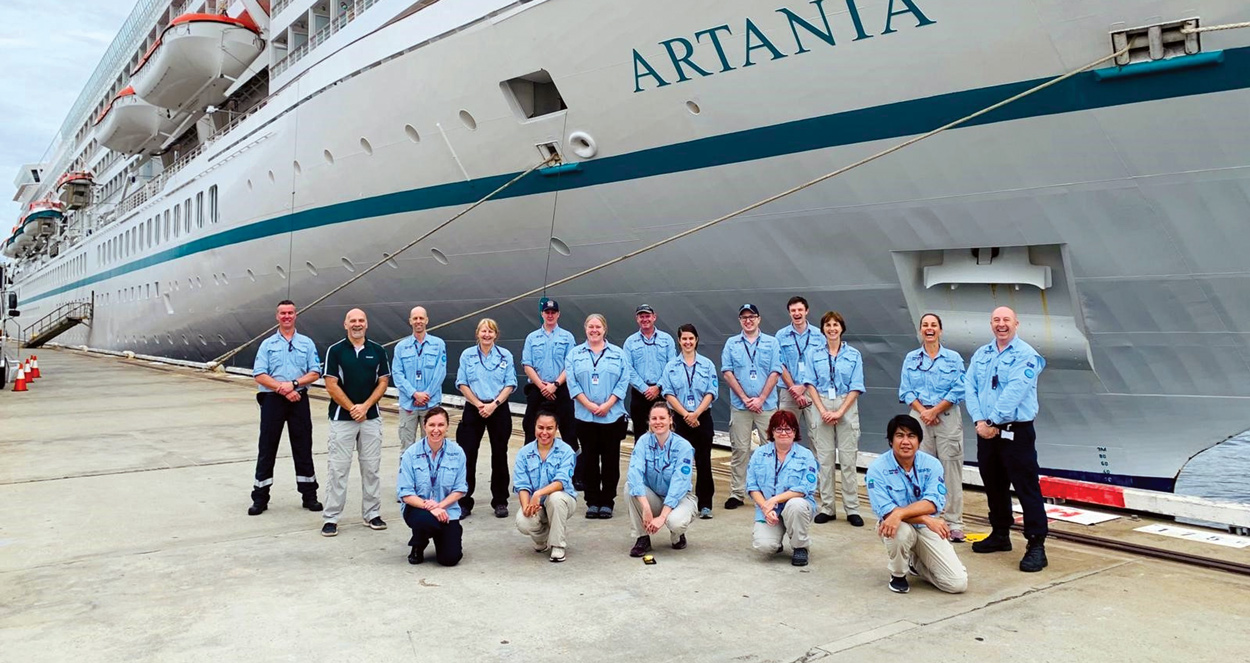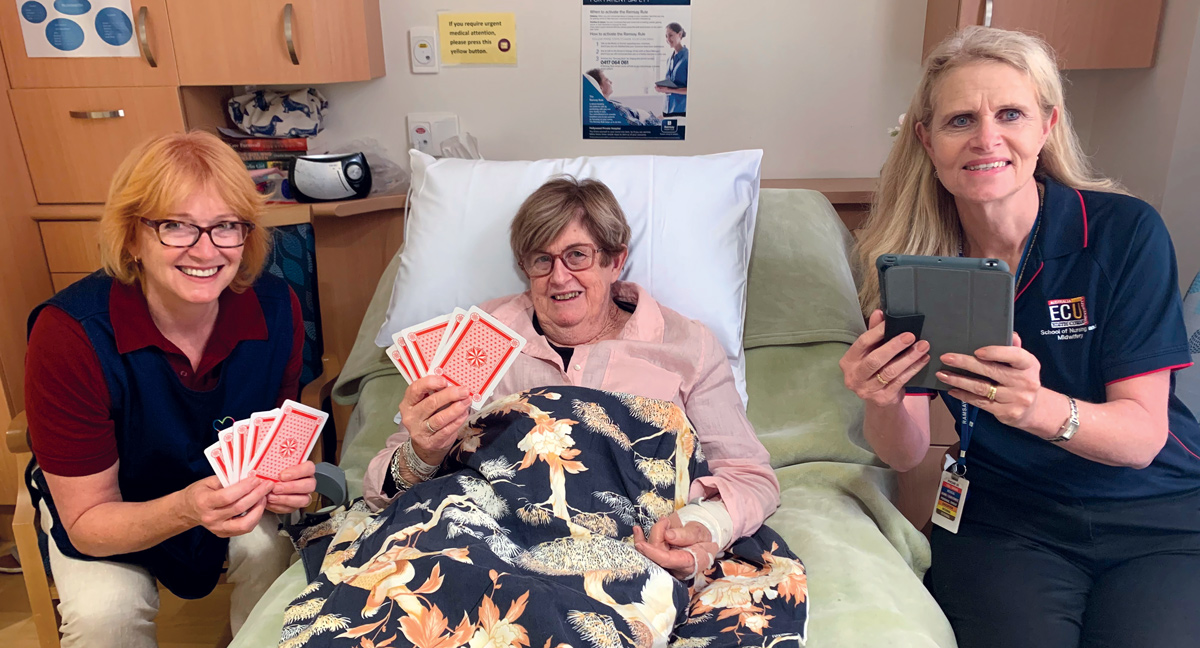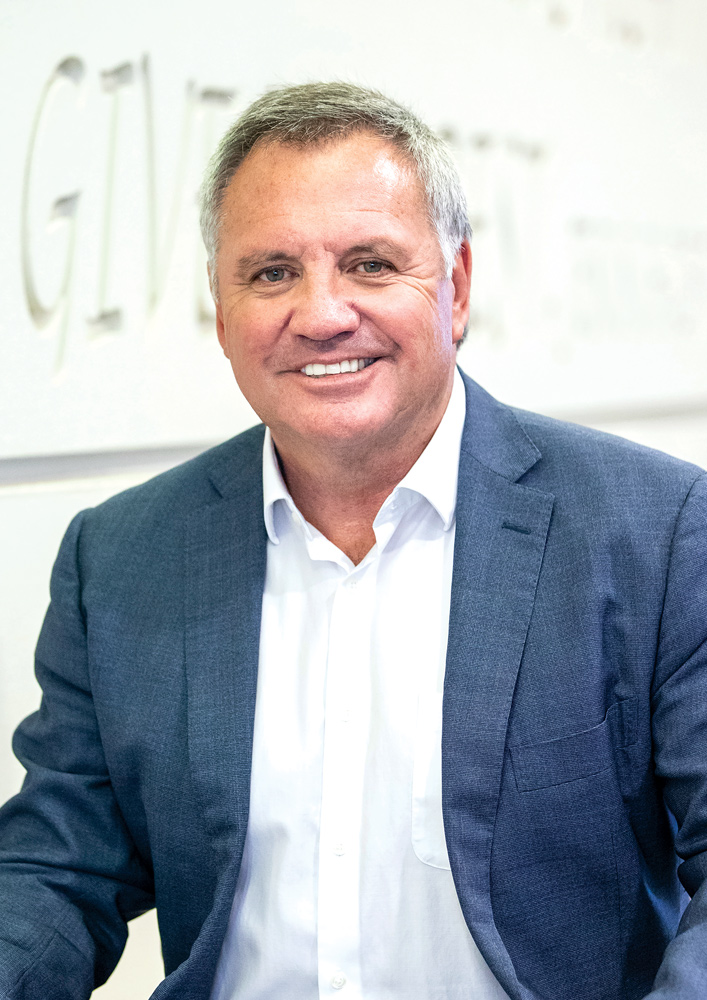 It’s all smooth sailing
It’s all smooth sailing
Western Australia’s success with cruise ship COVID management has been highlighted in new research.
The study into the response to the COVID-19 outbreak on the MV Artania cruise ship off WA’s coast last year was published in the Emerging Infectious Diseases Journal. State Health Incident Coordination Centre medical adviser Dr Tudor Codreanu and Communicable Disease Control Director Dr Paul Armstrong were among the authors of the paper.
“What we did in WA, and how we did it, proved to be successful,” Dr Codreanu said. “In the current global pandemic, we wanted to share it with the rest of the healthcare world so they could take inspiration – and confidence – if they were presented with a similar situation. Contrary to the widely-held opinion at the time that on-board quarantining was not practicable, WA demonstrated its feasibility under certain circumstances.”
On Budget
The Royal Australian and New Zealand College of Psychiatrists has welcomed the $2.3 billion boost to mental health announced in the recent Federal Budget. Repetitive transcranial magnetic stimulation had been added as a treatment available under the MBS, and there is a big spend on suicide prevention and a goal to achieve universal aftercare services following a suicide attempt. The funding boost includes $11 million toward boosting the psychiatrist workforce by creating 30 additional training posts by 2023, including regional and remote pathways, and almost $1 million to develop a nationally recognised Diploma in Psychiatry for medical practitioners, including GPs and emergency medicine specialists, to support the broader mental health workforce.
Telehealth extended…
The Consumers Health Forum has welcomed the extension of Medicare coverage for telehealth consultations for GPs, allied health and specialists to the end of 2021. It said that to be able to consult with a health care provider by phone or video was an important step in making ongoing healthcare safer for patients during the early days of the pandemic.
“This was particularly essential for people with complex and chronic conditions who needed ongoing care.” said the CHF’s CEO Leanne Wells. She added that before telehealth, many people had stopped going to their regular medical appointments and were also not following up on referrals. “It makes good use of the technology we already have”, Ms Wells said.
…but GPs are not rushing
An analysis of Medicare data for GP services over the past year shows that fewer than 1% were provided by video, despite the introduction of new telehealth items for the COVID-19 response in March 2020. The analysis of MBS data for GP services between April 2020 to March 2021 by Melbourne GP Andrew Baird shows that of the almost 150 million GP services, 72% were conducted in person, 27.4% were by phone and just 0.6% were by video.
Aged care on TV
A new Edith Cowan University project will investigate how security cameras could be used to improve patient safety in aged care homes. ECU researchers are surveying residential aged care facility staff and family members to understand their views and attitudes about closed circuit television monitoring and how it is used.
The survey follows a previous ECU pilot study at one Perth aged care facility, which found that 57% of family members and 38% of residents would like CCTV used in public spaces. The study also found 48% of family members and 25% of residents would like it used in bedrooms. Lead researcher Dr Caroline Vafeas said she hoped the findings from both studies would help inform the potential future use of cameras in residential aged care facilities. “At the moment CCTV monitoring is not widely used by the aged care sector for patient safety, but there are growing community calls for their use to provide stronger protections for vulnerable residents,” she said.

Enabling all
World-leading researcher and scientist Professor Bronwyn Myers has been appointed the foundation director of Curtin’s enAble Institute, a new research collaborative focused on enabling individuals living with physical and mental health needs or facing the challenges of ageing.
The Curtin enAble Institute research will take a whole-of-life (from maternity to palliative care) and whole-of-person (body, mind and place) approach to meet the physical and mental health needs of people of all levels of ability and age to help them stay well and in their communities.
Professor Myers was most recently Deputy Director of the Alcohol, Tobacco and Other Drug Research Unit of the South African Medical Research Council and has worked extensively in enhancing services for people with mental or physical health disorders to improve their quality of life.
Whiplash study
Curtin University researchers are trialling an innovative approach to treating spine and neck injuries sustained in traffic crashes that integrates aspects of physiotherapy and psychology. The researchers have put out a call for anyone with whiplash or back pain from a road traffic crash to take part in the study.
Dr Rob Schütze and Professor Peter O’Sullivan from the Curtin School of Allied Health will compare two different ways of treating neck or back pain associated with a road trauma to find out which might be best and what their associated costs are. Currently, it is unclear which treatment approach is best for neck and back pain and the benefits of treatment are often short-term.
New studies suggest that it may be useful to integrate treatment from various health care disciplines to address all aspects of a person’s pain experience. The current project will test this integrated approach in a pilot study of 60 people. Details at www.integrateclinicaltrial.com
Walking’s a killer
More than 1100 Australians died while playing sport over the past two decades, an average of more than one a week, according to research from Edith Cowan University. It is the first national analysis of fatal injuries occurring during sport or active recreation. Lead researcher Dr Lauren Fortington from ECU’s School of Medical and Health Sciences said the findings showed the cost to everyday Australians for our national obsession.
“We wouldn’t tolerate these injuries in a workplace, so we shouldn’t tolerate them on our playing fields,” she said. “If you look at the sports pages of a national media outlet, chances are there’ll be a story there about an Australian dying or experiencing serious injury while playing sport.”
Motorcycling accounted for nearly a quarter of all recorded deaths, with road cycling and horse riding also featuring in the top three most deadly sports. Surprisingly, swimming and walking were also among the sports with the most deaths recorded over the study but this is linked to the popularity of the activities. The data was collected from coroners’ reports and investigations from around Australia from 1 July 2000 until 31 December 2019.
 Frailty study
Frailty study
Research investigating the effects of nurse-led volunteer care and new pain assessment technology could lead to improved health outcomes of frail patients in hospital. The two-year nurse-led Volunteer Support and PainChek Frailty Study will involve more than 700 patients at Hollywood Private Hospital.
Dr Rosemary Saunders, a researcher at Edith Cowan University Centre for Research in Aged Care, said acute hospital inpatient populations were becoming older and this presented the potential for poorer outcomes.
“Factors such as chronic health conditions and cognitive and functional decline are associated with increased risk of harm, such as falls, delirium and poor nutrition,” Dr Saunders said. “There is evidence that the provision of volunteer care and support with eating and drinking, mobilising and therapeutic activities can improve patient health outcomes. We hope to build on this body of evidence with nurse-led volunteers providing mobility, orientation, sensory and nutritional support as well as cognitive stimulation.”
Dr Saunders said pain, which is common among the elderly, can also contribute to frailty if not managed effectively. The study also involves the use of the PainChek Universal app.
Spelling out ingredients
Patient understanding of the active ingredient in their medicines is important. To help culturally and linguistically diverse communities have better access to information about medicines, NPS MedicineWise has created a consumer fact sheet on active ingredients available in English and 10 other languages.
GPs, nurses, pharmacists, other health professionals and carers who work with people who read Arabic, Simplified Chinese, Traditional Chinese, Greek, Hindi, Italian, Punjabi, Spanish, Tagalog and Vietnamese are encouraged to download the fact sheet to help people understand why the information on their prescription now looks different. Research has found that people from CALD backgrounds experience higher rates of adverse outcomes from poor medication management, including medication-related hospital admissions. The
fact sheet can be found at www.nps.org.au/consumers.
Webinars for GPs
St John of God Subiaco Hospital has launched a new GP education on-demand webinar series offering more convenience to members of the GP community. The series includes pre-recorded educational presentations which cover a range of medical topics relevant to GPs and their practice.
Each webinar is delivered by leading SJG Subiaco Hospital specialists and can be accessed via the hospital’s GP Hub website. CPD points are available for each on-demand webinar as endorsed by the Royal Australian College of General Practitioners. SJG Subiaco’s Director of Business and Service Development Steve Cohen-Jones said the innovative series was introduced in response to feedback from GPs, and their need for timely and current health care information. “This new initiative is one of the many ways that we provide GPs access to the latest specialist treatment and patient care information,” he said. For more information, visit www.sjog.org.au/subiacoondemand
Ovarian cancer trial blow
Researchers from the UK Collaborative Trial of Ovarian Cancer Screening have reported that despite being able to detect ovarian cancer early, the trial did not translate into saving lives. The results, published in The Lancet, follow a study that spanned three decades and involved 200,000 postmenopausal women, looking into the long-term impact of screening on ovarian cancer mortality. Responding to the results, the CEO of Ovarian Cancer Australia, Jane Hill, said it was disappointing to learn that the screening trial had not delivered the outcome everyone had wished for, especially after so many years of hard work from the research team. “However, our disappointment pales in significance compared to the struggles and isolation that women living with ovarian cancer face on a daily basis,” she said. “But hope is not lost. There are many ups and downs in the world of research, and we continue to advocate for advances in ovarian cancer. We’re still hopeful we’re closer to a breakthrough than ever before.”

Mental health first south of river
Bethesda Health Care has started building the first private mental health clinic and service south of the river. The Bethesda Clinic will explore new care models through innovation and digitisation, including multi-disciplinary care and an advanced electronic medical record system.
The clinic will feature three wards on separate levels, comprising 45 overnight beds, a mental health and wellness recovery centre to provide therapy on an outpatient basis, and a state-of-the-art neurostimulation procedure suite. The clinic is expected to accept patients by July 2022.
According to Cathy Thomas, Mental Health Clinical Nurse Consultant to the project, it will benefit consumers who currently have to travel long distances to get private mental health care. “Currently someone who may live south of Mandurah has to travel north of the river to access private mental health inpatient care, and we believe that this is unacceptable in 2021,” she said.
The neurostimulation suite will offer evidence-based treatments for disorders such as depression, using electro-convulsive therapy and repetitive transcranial magnetic stimulation, both known to be effective treatments for a range of disorders.
Bethesda CEO Dr Neale Fong, right, said the clinic would help meet the increasing demand for mental health services in Perth.

